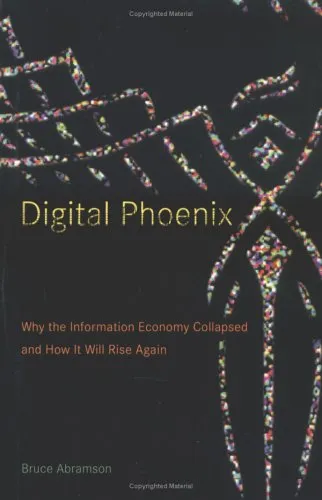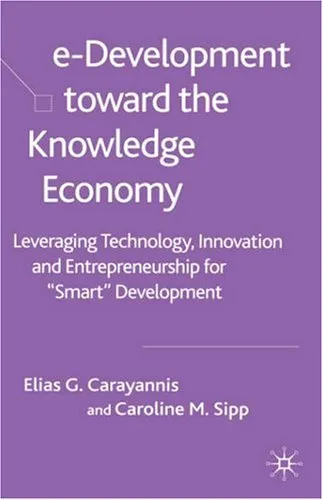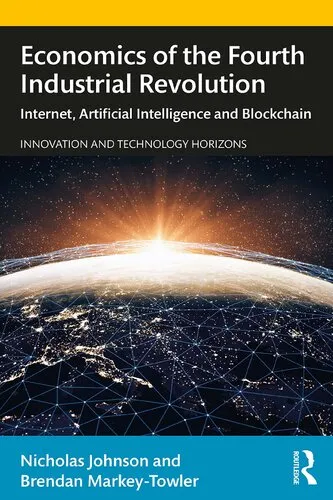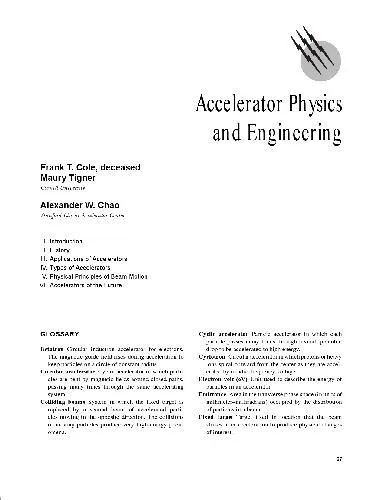Digital Phoenix: Why the Information Economy Collapsed and How It Will Rise Again
4.0
Reviews from our users

You Can Ask your questions from this book's AI after Login
Each download or ask from book AI costs 2 points. To earn more free points, please visit the Points Guide Page and complete some valuable actions.Related Refrences:
The dawn of the twenty-first century bore witness to the meteoric rise and subsequent implosion of the dot-com bubble—a phenomenon that not only reshaped global markets but also raised fundamental questions about the digital future. In ‘Digital Phoenix: Why the Information Economy Collapsed and How It Will Rise Again’, Bruce Abramson offers a compelling exploration of the forces that spurred the exponential growth of the information economy, the missteps that led to its dramatic crash, and why he believes it is poised for a grand resurgence. This book is your gateway to understanding the intricacies of one of the most transformative epochs of modern history and why its lessons resonate today more than ever.
Digital Phoenix is not just an autopsy of the dot-com era but rather an optimistic vision of renewal. Abramson draws on economics, technology, and public policy to paint a nuanced picture of the information age—both in terms of its potential for human progress and the pitfalls that await an unprepared society and economy. It delves deeply into how innovation, regulation, market dynamics, and human ambition interact, offering a framework to better understand how technological revolutions unfold.
Detailed Summary of the Book
At its heart, Digital Phoenix seeks to unravel the core problem of the dot-com collapse and propose strategies for harnessing the information economy’s unrealized potential. The narrative begins with a vivid recounting of the dot-com boom—the rush of venture capital, the idealistic aspirations of pioneering entrepreneurs, and the irresistible allure of the infinite possibilities of digital connectivity. However, this initial euphoria was followed by harsh lessons, as economic fundamentals caught up with speculative fervor and many digital enterprises faltered.
Abramson outlines the systemic weaknesses underlying the crash, ranging from flawed business models to a lack of understanding of the true nature of value creation in the information age. He makes a sharp distinction between technology as an enabler of opportunity and the economic frameworks required to sustain that opportunity over time.
The second half of the book takes a forward-looking approach, envisioning a future where the lessons of the dot-com collapse inform smarter decisions. Abramson explains the role that intellectual property, digital rights management, telecommunications policies, and societal values will play in driving the next phase of the information age. His detailed analysis does not shy away from difficult questions, such as how monopolistic practices and regulatory challenges could stifle innovation if left unchecked. Ultimately, he argues that the digital economy is far from dead—it is merely in hibernation, waiting for societies to find the correct framework to unleash its full potential.
Key Takeaways
- The dot-com collapse was not the end but a correction in the evolution of the digital economy.
- Sustainable digital businesses are built on economically sound models, not mere hype or speculation.
- Government policies, intellectual property laws, and fair market practices are crucial for fostering innovation while ensuring fairness.
- The digital transformation of markets is far from complete; new opportunities continue to emerge as technology evolves.
- Understanding the failures of the past equips society to create a more resilient and successful future for the information economy.
Famous Quotes from the Book
"The information economy was never a bubble—it was an awakening. The bubble was the illusion that we had already mastered it."
"Technology may be a driver, but it is economics that steers the journey."
"True innovation disrupts not only industries but also assumptions—challenging what we think is possible."
Why This Book Matters
As digital technologies continue to reshape economies and societies, Digital Phoenix provides critical insights into understanding where we went wrong and how we can chart a better path forward. Bruce Abramson masterfully combines analysis and optimism to show why the information age is still in its infancy, with endless potential awaiting those prepared to harness it intelligently. For entrepreneurs, policymakers, business leaders, and anyone invested in the possibilities of the digital future, this book serves as both a guide and a warning. It reminds us that while innovation opens doors, it’s up to us to walk through them wisely.
Free Direct Download
You Can Download this book after Login
Accessing books through legal platforms and public libraries not only supports the rights of authors and publishers but also contributes to the sustainability of reading culture. Before downloading, please take a moment to consider these options.
Find this book on other platforms:
WorldCat helps you find books in libraries worldwide.
See ratings, reviews, and discussions on Goodreads.
Find and buy rare or used books on AbeBooks.
1180
بازدید4.0
امتیاز0
نظر98%
رضایتReviews:
4.0
Based on 0 users review
Questions & Answers
Ask questions about this book or help others by answering
No questions yet. Be the first to ask!













